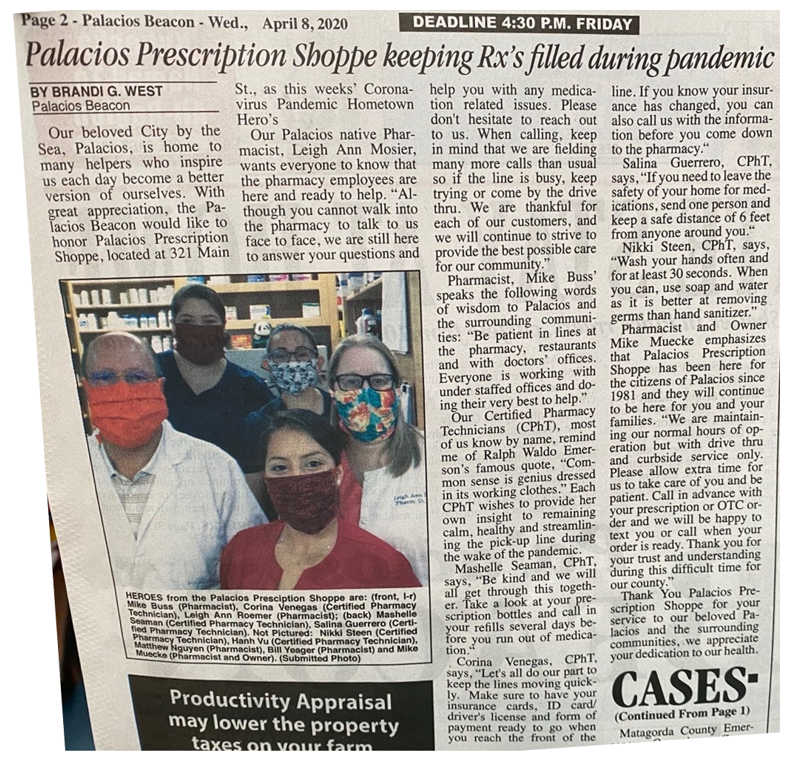On April 3, the U.S. Supreme Court officially postponed oral argument in the landmark
Rutledge v. PCMA case as a result of the COVID-19 crisis. The Rutledge case had been originally scheduled to be heard April 27. The Court did not state whether it will rule on the case before the current term ends in June, or whether it will defer oral argument until the fall.
At issue in the Rutledge case is whether federal ERISA law pre-empts a 2015 Arkansas PBM reform law. PCMA has argued that Arkansas' law, as well as other state PBM-reform laws across the country, are not enforceable because they are pre-empted by federal ERISA law.
If the U.S. Supreme Court sides in favor of Arkansas, it will vastly increase the ability of states to regulate multiple aspects of PBM operations.
Make Sure Your Community Knows You Are Hanging Tough!

We know that all of you out there are working through challenging conditions to continue serving your patients and your communities. And you all are deserving of the public's praise and appreciation for your efforts.
APRx Board Member Mike Muecke's crew at the Palacios Prescription Shoppe in Palacios, Texas, got a nice shout-out (at left) from their local weekly newspaper, the Palacios Beacon, in today's issue. Many more of you must be getting this type of recognition, so please share it with us by sending a photo of or link to the article/photo.
An easy way to get publicity from your area media is to send a photo of your pharmacy staff to your local newspaper or television station along with announcement that you are still in business to serve the community. Be sure to tell the media outlets what your hours and prescription fill procedures are during the pandemic and if you are delivering and/or mailing medications. It's important information that they should share with the community in the interest of public health, and you'll get some recognition out of it. You could also use the opportunity to share important facts about the pandemic, medications or personal protection.
If you're doing something noteworthy -- like making your own hand sanitizer and giving it away to first responders in your community -- make sure the media know about that, too.
Getting the word out that you are still open for business and proving a badly needed health service in your community is important. And there's nothing wrong with building your visibility and public image in the process.
Please let us know how it's going by share your Facebook posts, photos and media clipplings/links with our marketing & communications team: